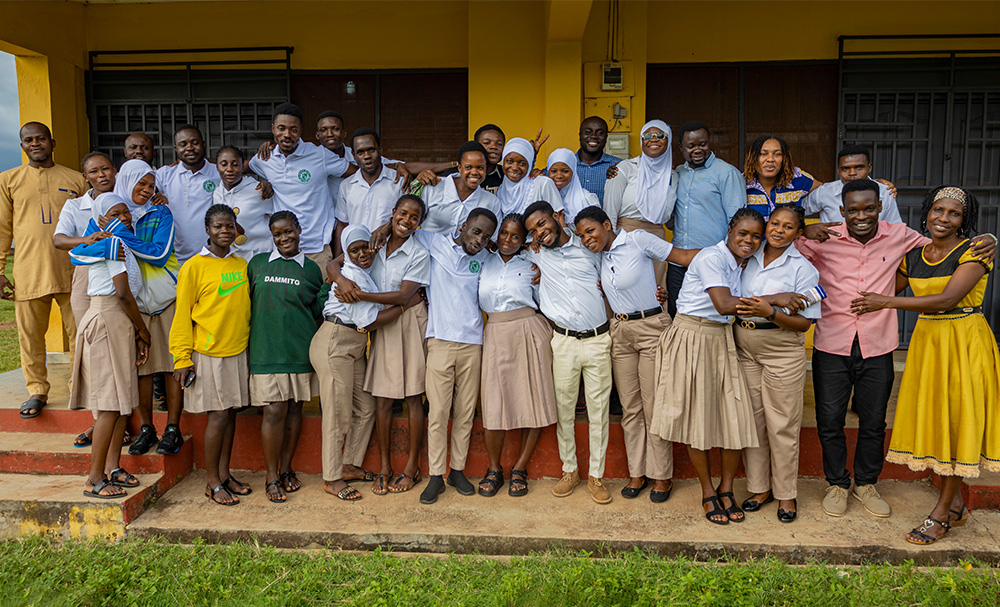The Kwame Nkrumah University of Science and Technology (KNUST) Nutrition and Sustainable Agri-food Collaborative, in partnership with the Mastercard Foundation (Nkabom Collaborative), has completed a 10-day agribusiness training for students of Wenchi Agricultural College in the Bono Region to promote entrepreneurship and innovation in agriculture.
The programme, part of the Nkabom Collaborative’s nationwide initiative, brought together 30 students to build entrepreneurial thinking and creative problem-solving skills among agricultural learners and tutors.
During the training, participants developed business proposals addressing key agricultural challenges, culminating in group presentations that focused on sustainability, value addition, and eco-friendly practices.
Bismark Amponsah Opoku, a participant, led his team in presenting an innovative proposal on producing organic pesticides from neem leaves, integrating poultry droppings as organic manure. He said the concept aims to reduce dependence on inorganic pesticides and fertilisers that degrade soil and affect crop productivity.
“This initiative will not only enhance soil fertility but also improve the quality and safety of farm produce,” he said.
Another participant, Asamawu Abdul Rahaman, described the training as an “eye-opener” that had expanded her entrepreneurial mindset. “The training has inspired me to think differently about agriculture. I now see opportunities where I once saw problems,” she said.
Principal of Wenchi Agricultural College, Mahamadu Abdulai, expressed gratitude to the Nkabom Collaborative for extending the programme to his institution. He said the training had transformed students’ views of agriculture from mere production to enterprise and innovation.
“The training has instilled in our students a mindset of critical thinking and self-reliance. They now understand that agriculture is not just about production but also about enterprise and creativity,” he said.
Project Associate of the Nkabom Collaborative, Samuel Arhinful, commended the participants for their enthusiasm and urged them to apply their new knowledge to create agribusiness ventures.
“We want to see these ideas materialise into sustainable agribusinesses, and the project will continue to provide the necessary support to make that happen,” he said.

















